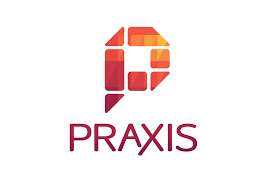The Implications of the Block Schedule
November 1, 2017
As of the 2018-2019 school year, the secondary schools of the Cherokee County School Districts will for the first time be in a block schedule. Researchers of school schedules have some criticisms for the traditional period schedule and also for the more contemporary block schedules. The sudden change will have consequences for various classes and possibly progression.
A cursory description of the current, daily schedule of Gaffney High School is as follows. School is in session between 8:15 and 3:30. There are nine periods, 7 of which are classes of about fifty minutes each. One period is reserved for lunch and another for homeroom, leaving an average of seven classes per student everyday. The schedule does not change from day to day, and each class is taken for the entire school year.
The block schedule has several changes with goals in mind to improve the classroom experience. Having only four classes a day, a block schedule allots twice as much as time for each class; this gives students and teachers more time to have a more productive lesson. A complaint of the traditional class schedule may be that it does not give enough time for class work, the result being more homework. With seven classes compounding homework, this leaves many students teaching themselves when a question is not answered in class. It is also more likely that teachers give superficial assignments so that students have the time to do them and shorter tests so that students can finish within one class period.
Another major criticism of the traditional schedule is that much time is spent just in class change. At Gaffney High School, class changes are six minutes long, so with six (or seven with homeroom) class changes, daily, almost 35-45 minutes are of students walking the halls. Researchers also attribute this amount of downtime to a portion of disciplinary matters, meaning the more downtime, the more misbehavior. While so much unsupervised time requires active monitoring, such would cut into the administrative duties of principals and security personnel who can not be on every hall at once.
The block schedule is also criticized; four classes per day means that students take them only for a semester. The block schedule is criticized in this regard, for it is possible for a class to start a calendar year after its primary class has finished. For example, pre-calculus might end the first semester of the first year, and then calculus might only start the second semester of the second year, leaving a full year between two classes that are needed for students to understand the material fully.
Finishing about half of her courses in the middle of the year, a student would no longer take all of her exams at the end of the year. To test under the traditional schedule makes for an arduous May, in which the average seven exams are taken, one for each class.
There are a plethora of branches from the traditional schedule. Should school start an hour later? Should there be an A/B schedule? Should the time at which school ends vary from day to day? All of these questions and many more, the Cherokee County School District Office considers and implements directly.











